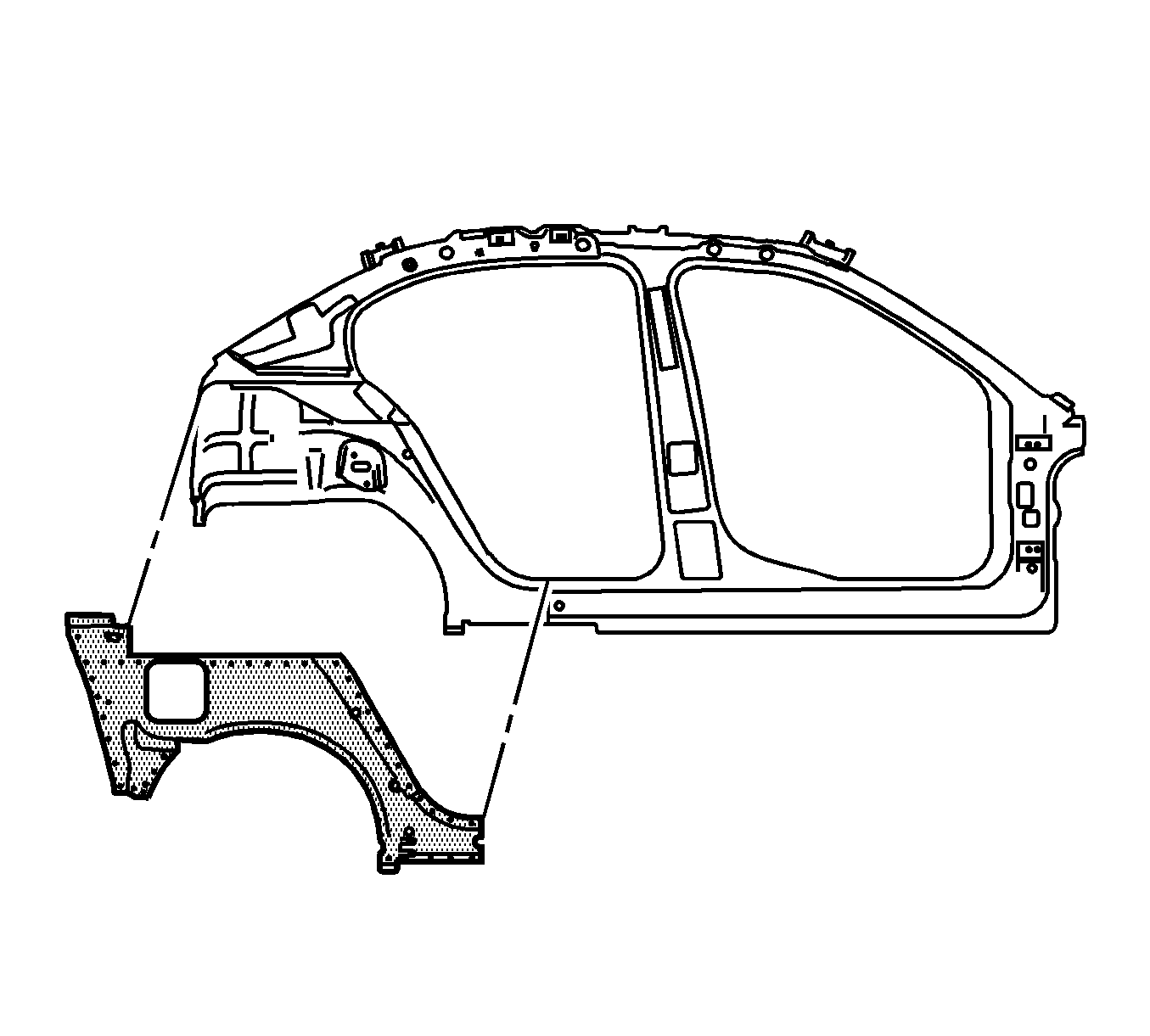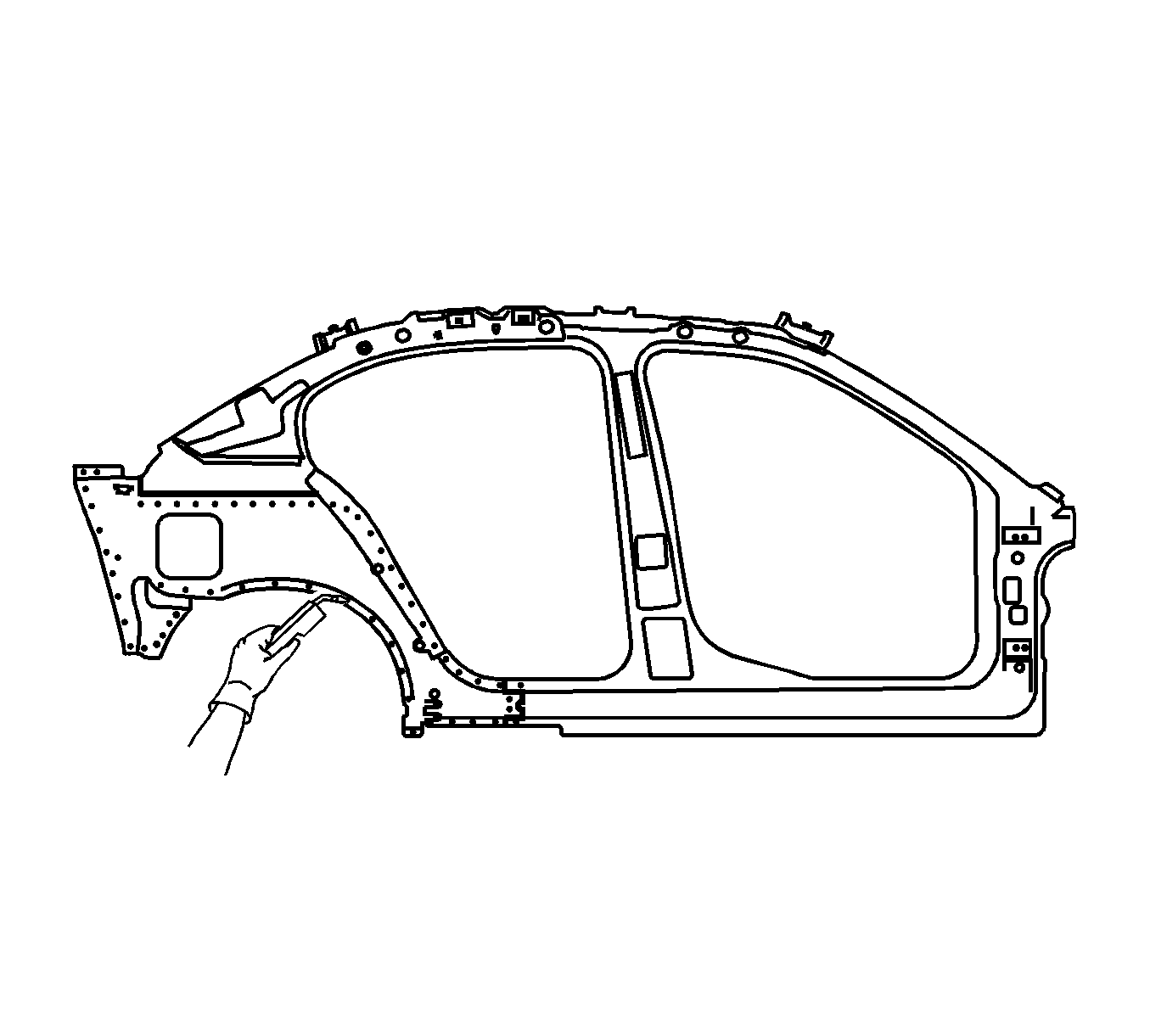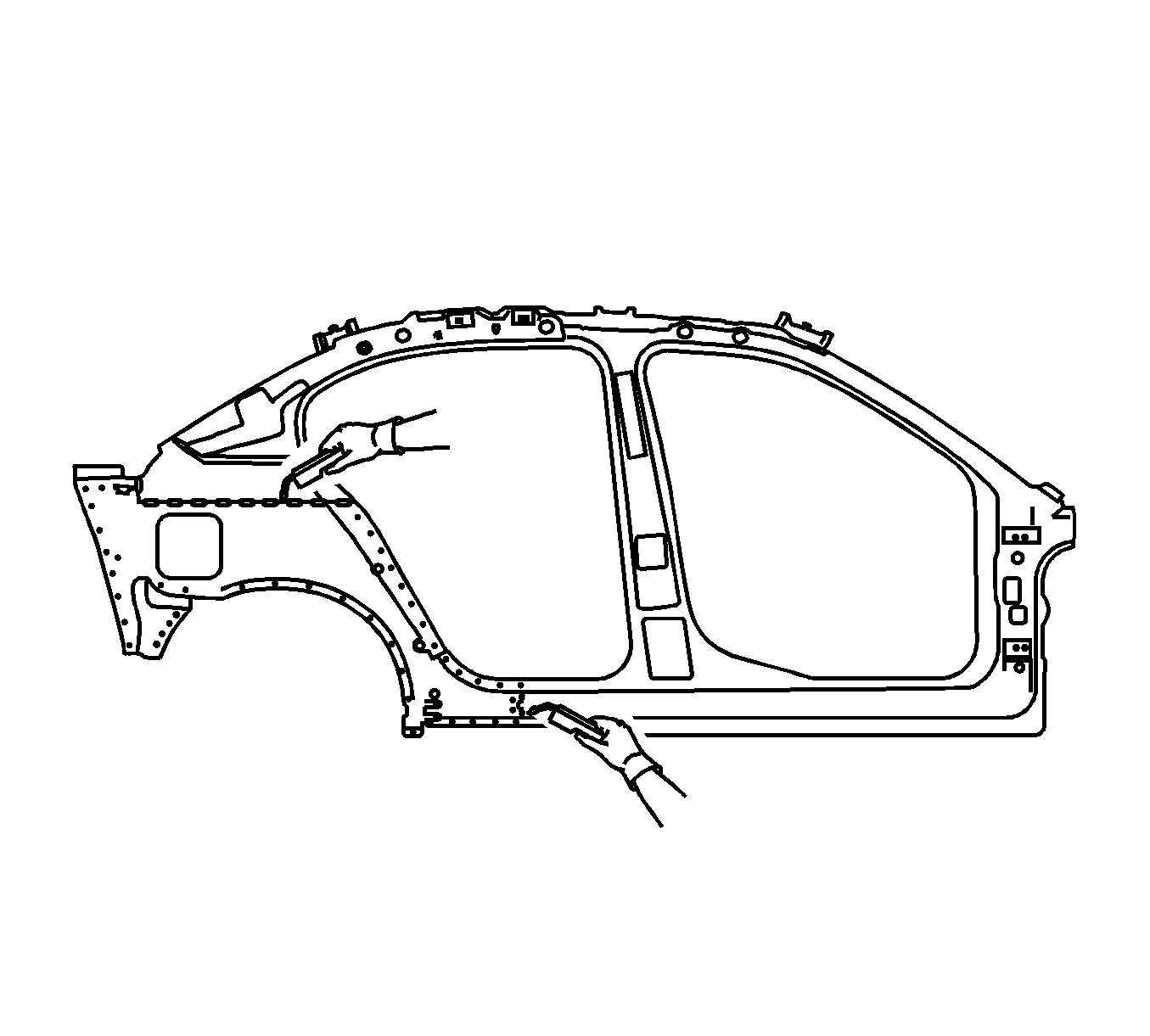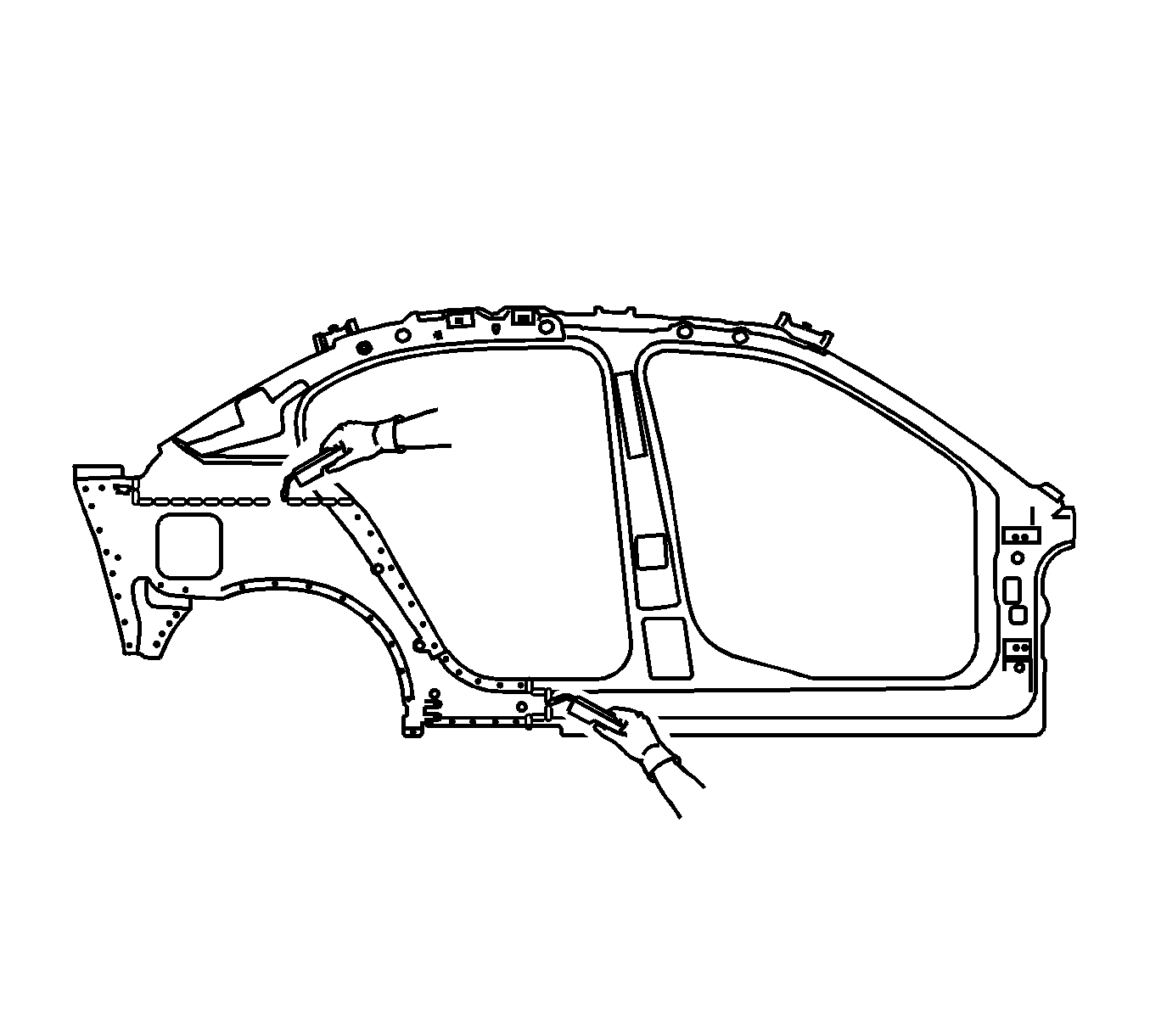For 1990-2009 cars only
Removal Procedure
Caution: Refer to Approved Equipment for Collision Repair Caution in the Preface section.
- Disable the SIR system. Refer to SIR Disabling and Enabling .
- Disconnect the negative battery cable. Refer to Battery Negative Cable Disconnection and Connection .
- Remove all related panels and components.
- Restore as much of the damage as possible.
- Remove the sealers and anti-corrosion materials from the repair area, as necessary. Refer to Anti-Corrosion Treatment and Repair .
- Remove the body inner reinforcement.
- Apply a piece of 50 mm (2 in) tape (a) along the flat area above the outer wheel housing, just below the package shelf mating surface, as shown. This is your sectioning location.
- In the rocker panel area, measure 40 mm (1.5 in) rearward from the rear 25 mm locating hole as shown (b) . Scribe a line. This is your sectioning location.
- Cut the panel to be sectioned.
- Locate, mark, and drill out all the necessary factory welds.
- Remove the damaged wheelhouse section.
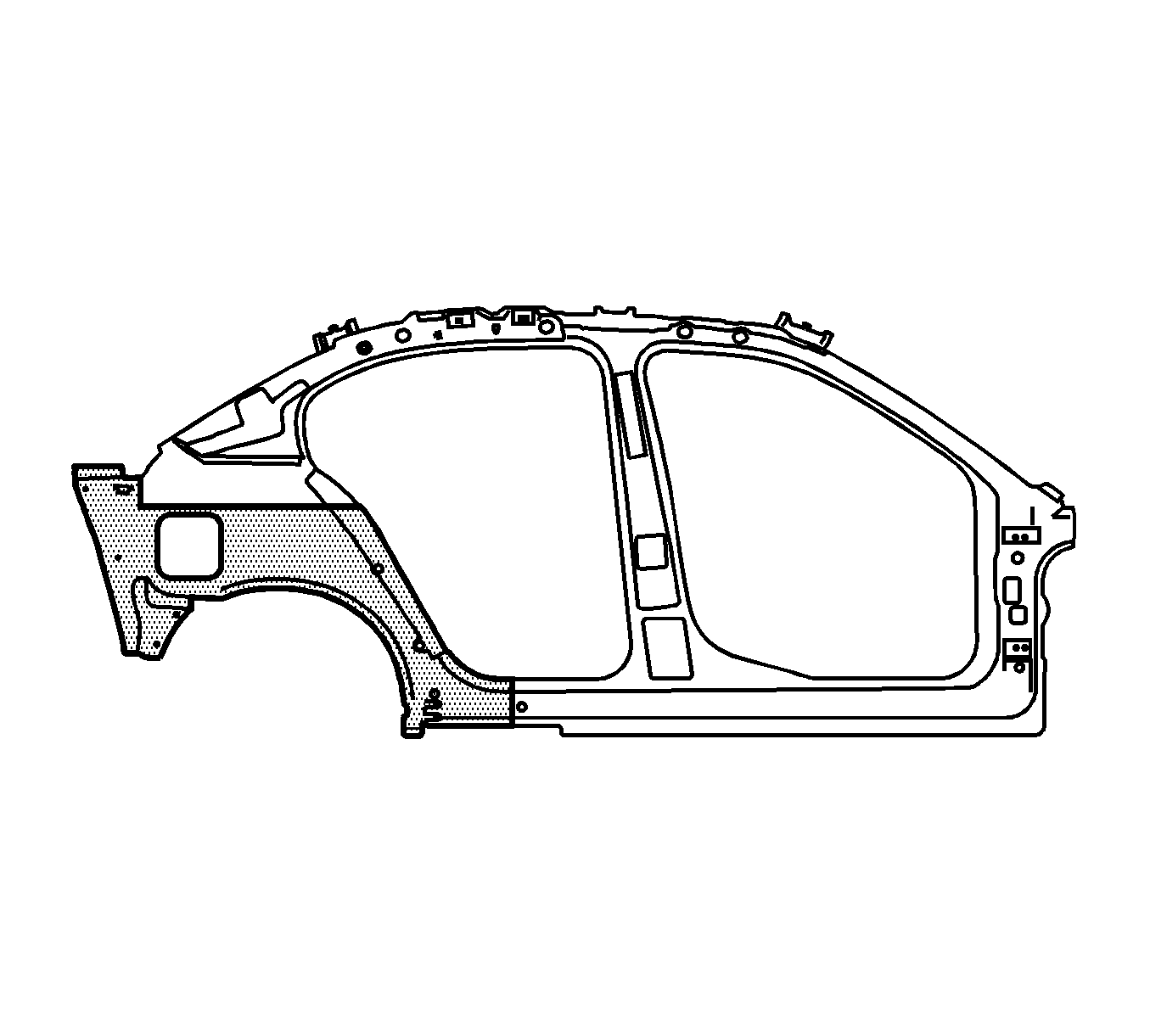
Caution: Sectioning should be performed only in the recommended areas. Failure to do so may compromise the structural integrity of the vehicle and cause personal injury if the vehicle is in a collision.
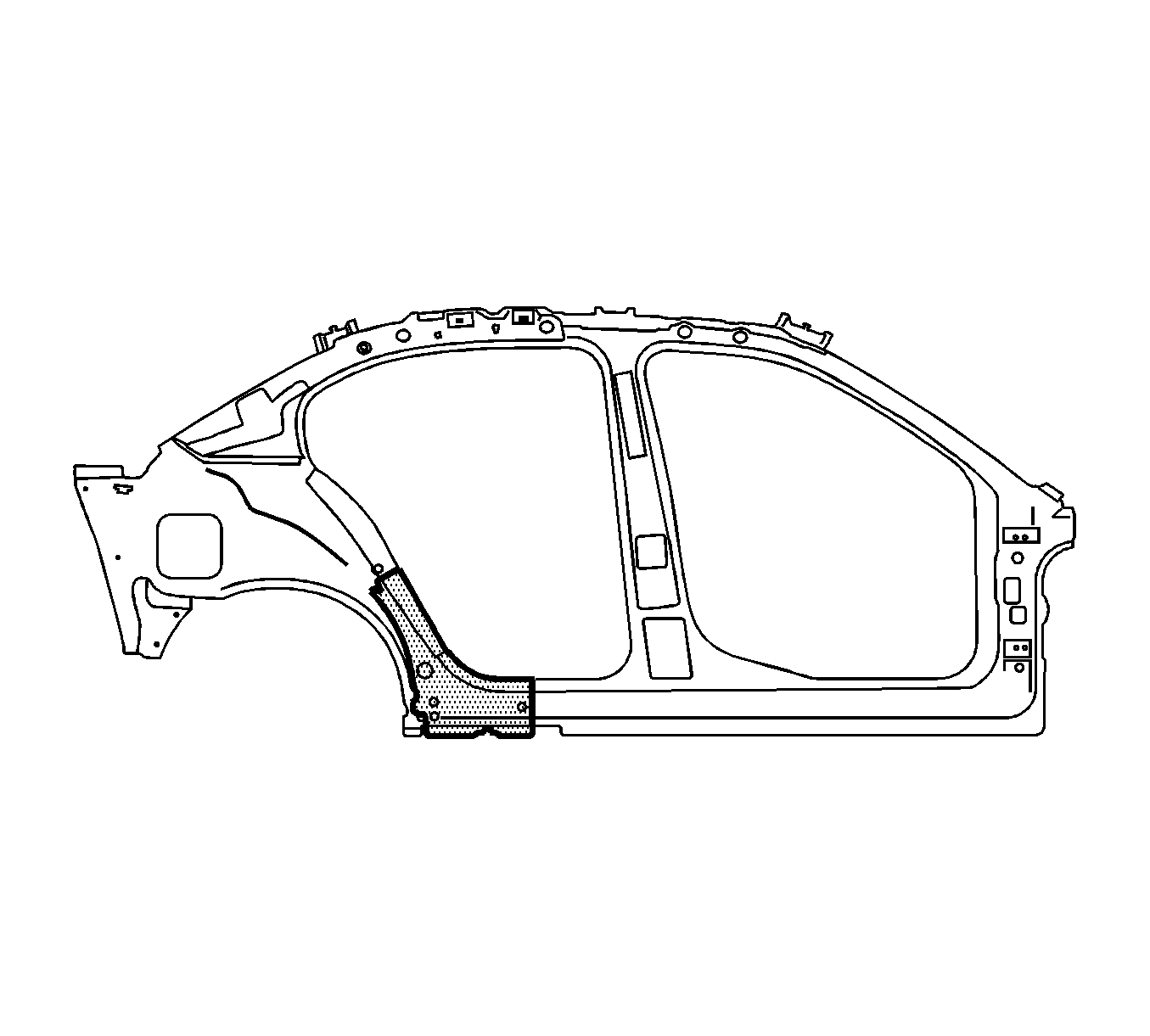
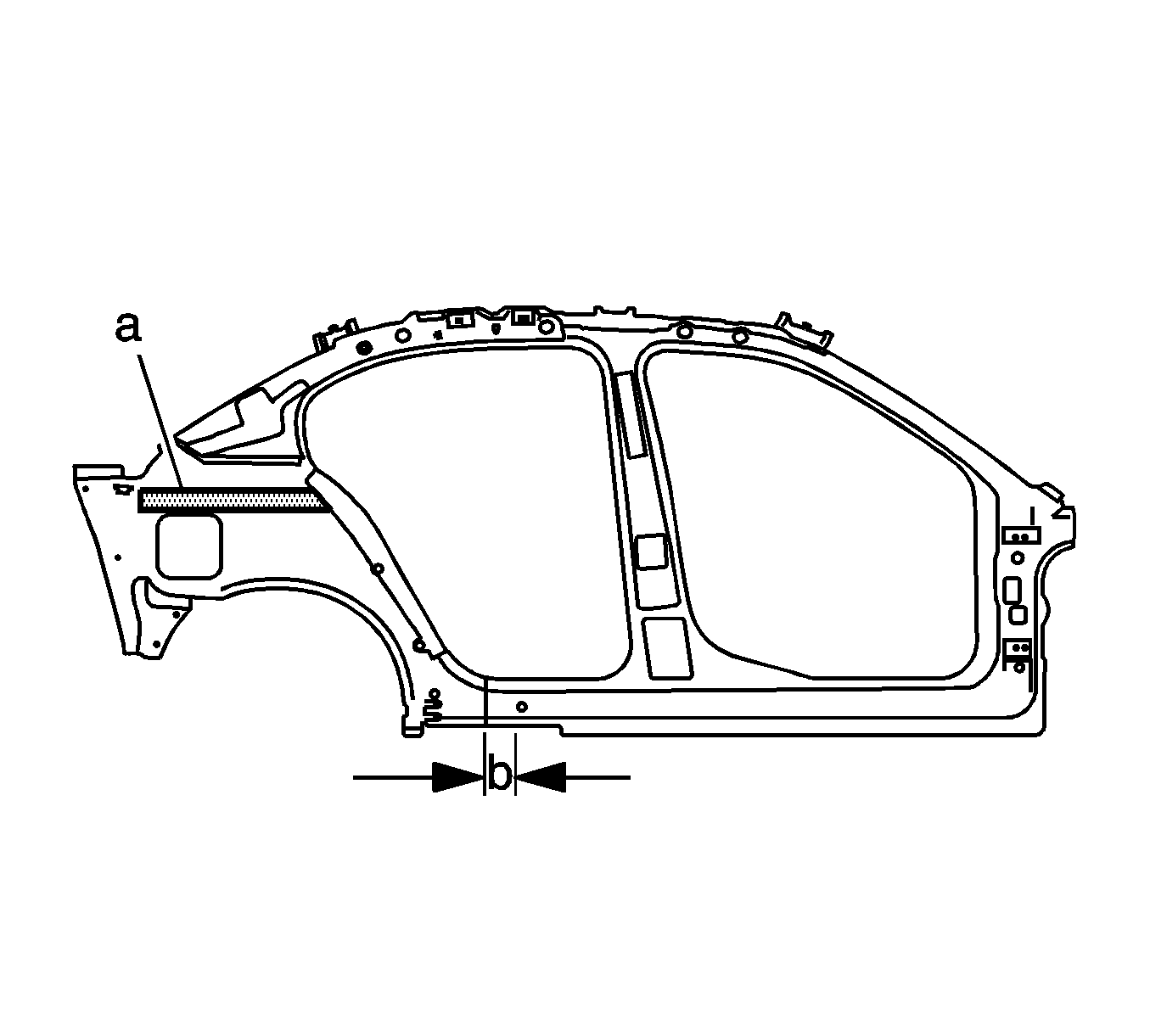
Important: Do not damage any inner panels or reinforcements.
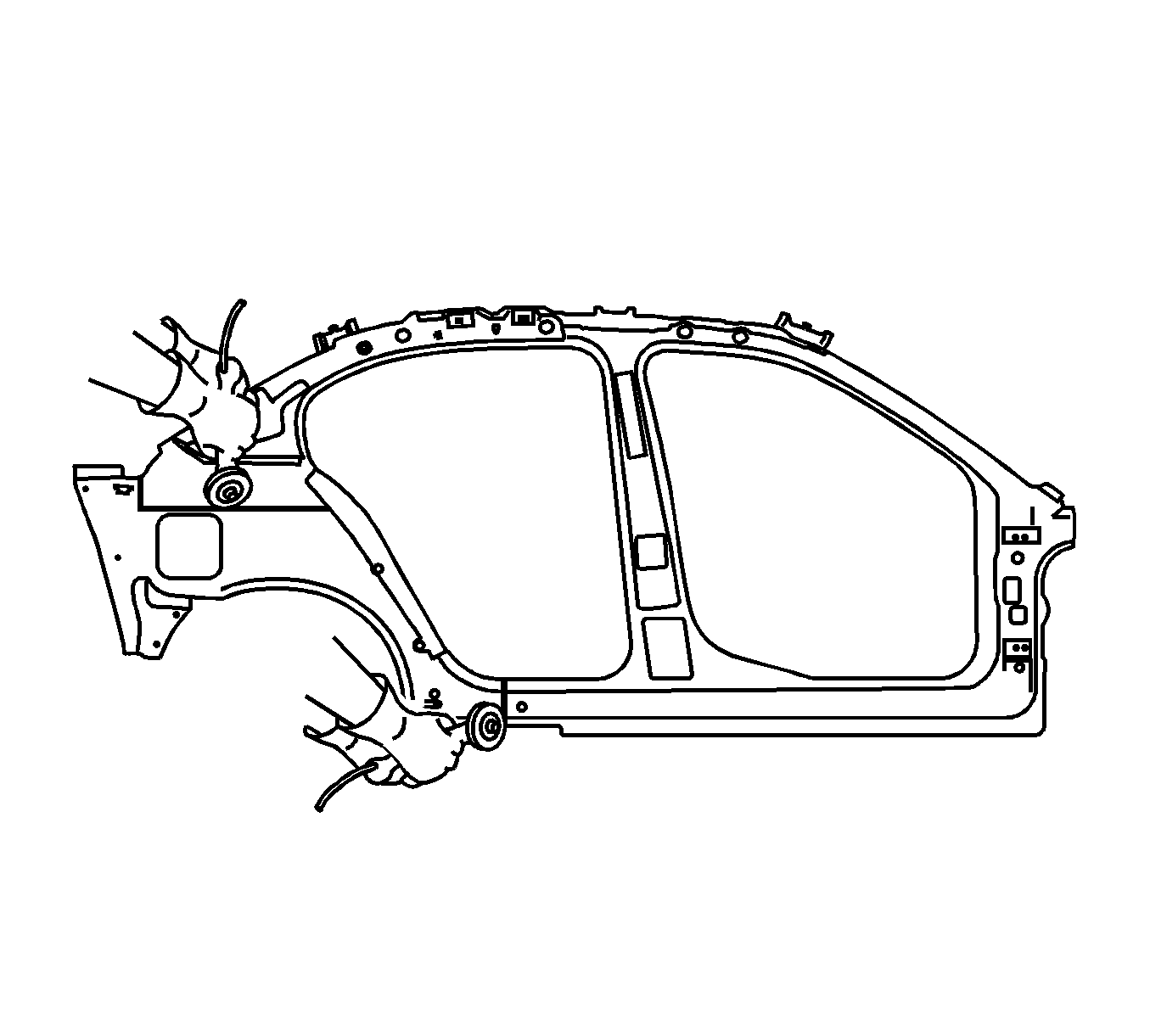
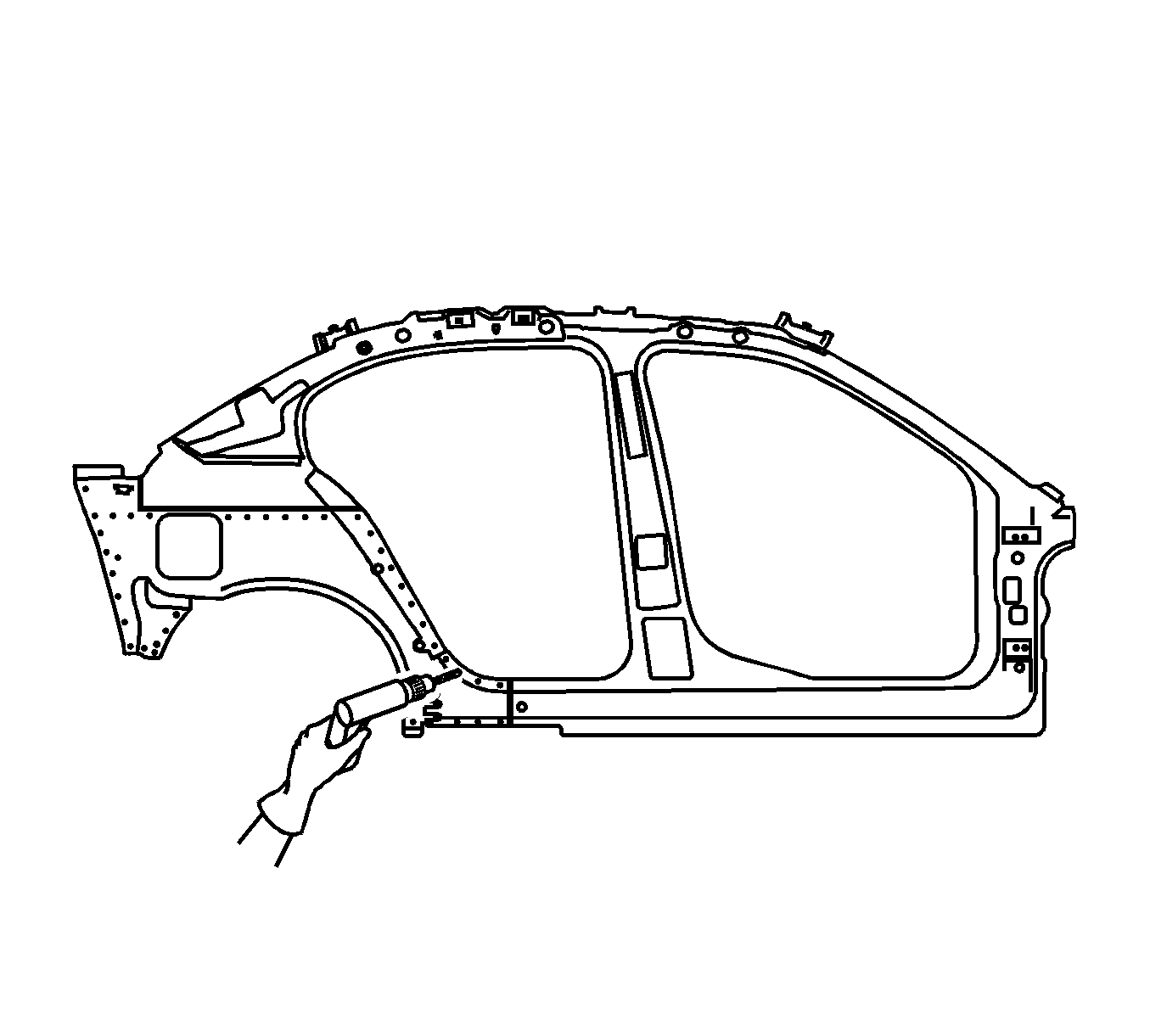
Important: Note the number and location of the factory welds for installation of the inner quarter panel.
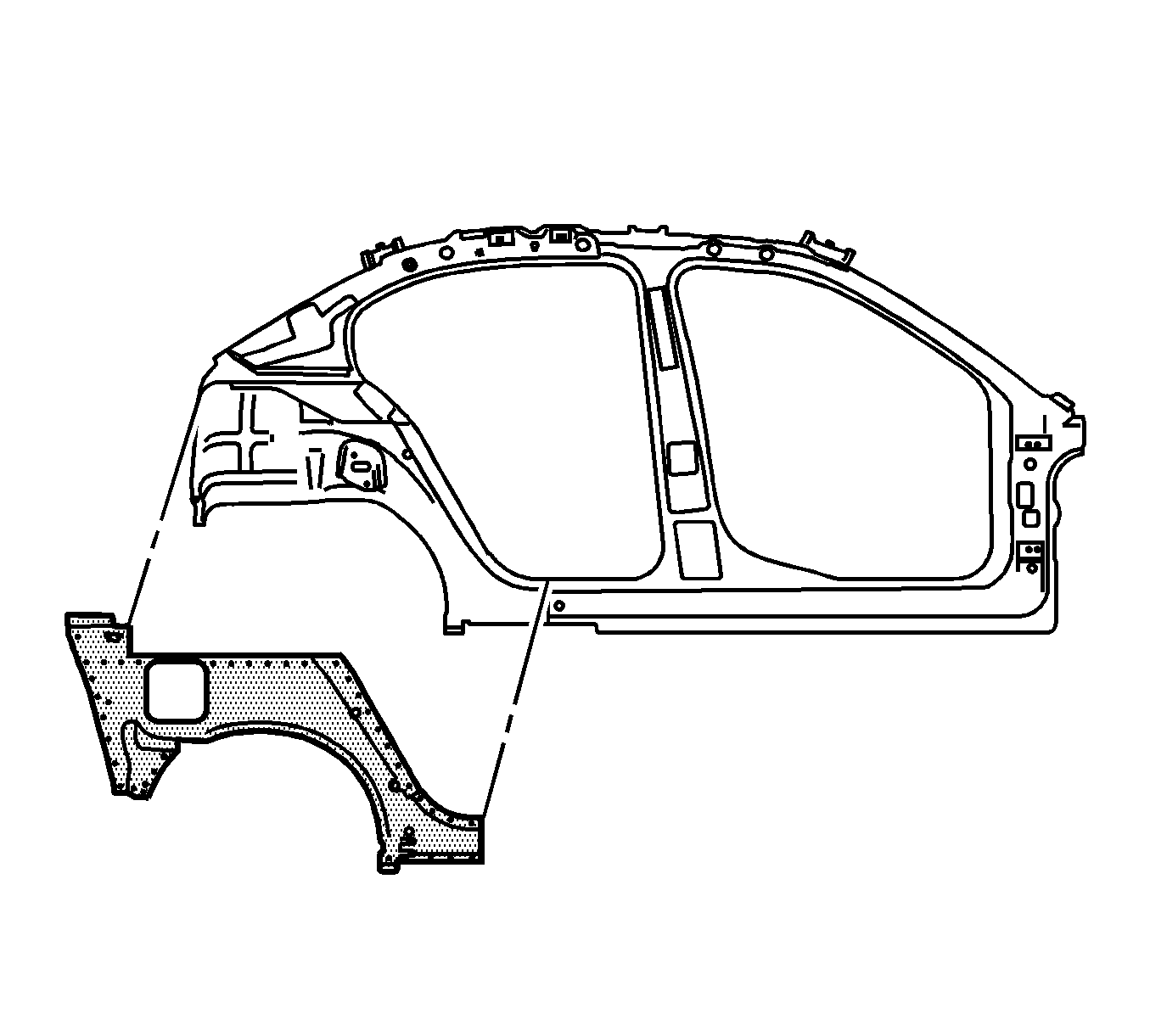
Installation Procedure
- Cut the service part in the corresponding locations to the sectioning cuts. Allow for a 50 mm (2 in) overlap at the wheelhouse.
- Apply 50 mm (2 in) masking tape above the flat area of the wheel house. Cut on the top edge of the masking tape (a) to correspond with the mating surface of the package shelf extension.
- Scribe a line. Cut the panel (b) in a straight vertical line through the 25 mm locating hole.
- At the cut edge of the service rocker panel, measure rearward 50 mm (2 in) (a). Notch out the rocker panel flange to allow the underlap to the extension rocker.
- Drill 8 mm (5/16 in) plug weld holes along the sectioning cut on the original reinforcement. Locate these holes 25 mm (1 in) from the edge and spaced 40 mm (1½ in) apart.
- Drill 8 mm (5/16 in) plug weld holes in the service reinforcement as necessary in the locations noted from the original panel.
- Prepare all mating surfaces as necessary.
- Apply 3M Weld-Thru Coating P/N 05913 or equivalent to all mating surfaces.
- Align the service part on the vehicle using 3-dimensional measuring equipment.
- Plug weld accordingly.
- To create a solid weld with minimum heat distortion, make 25 mm (1 in) stitch welds along the seam with 25 mm (1 in) gaps between them. Go back and complete the stitch weld.
- Install the body inner reinforcement.
- Clean and prepare all of the welded surfaces.
- Apply the sealers and anti-corrosion materials to the repair area, as necessary. Refer to Anti-Corrosion Treatment and Repair .
- Paint the repaired area. Refer to Basecoat/Clearcoat Paint Systems .
- Install all of the related panels and components.
- Connect the negative battery cable. Refer to Battery Negative Cable Disconnection and Connection .
- Enable the SIR system. Refer to SIR Disabling and Enabling .
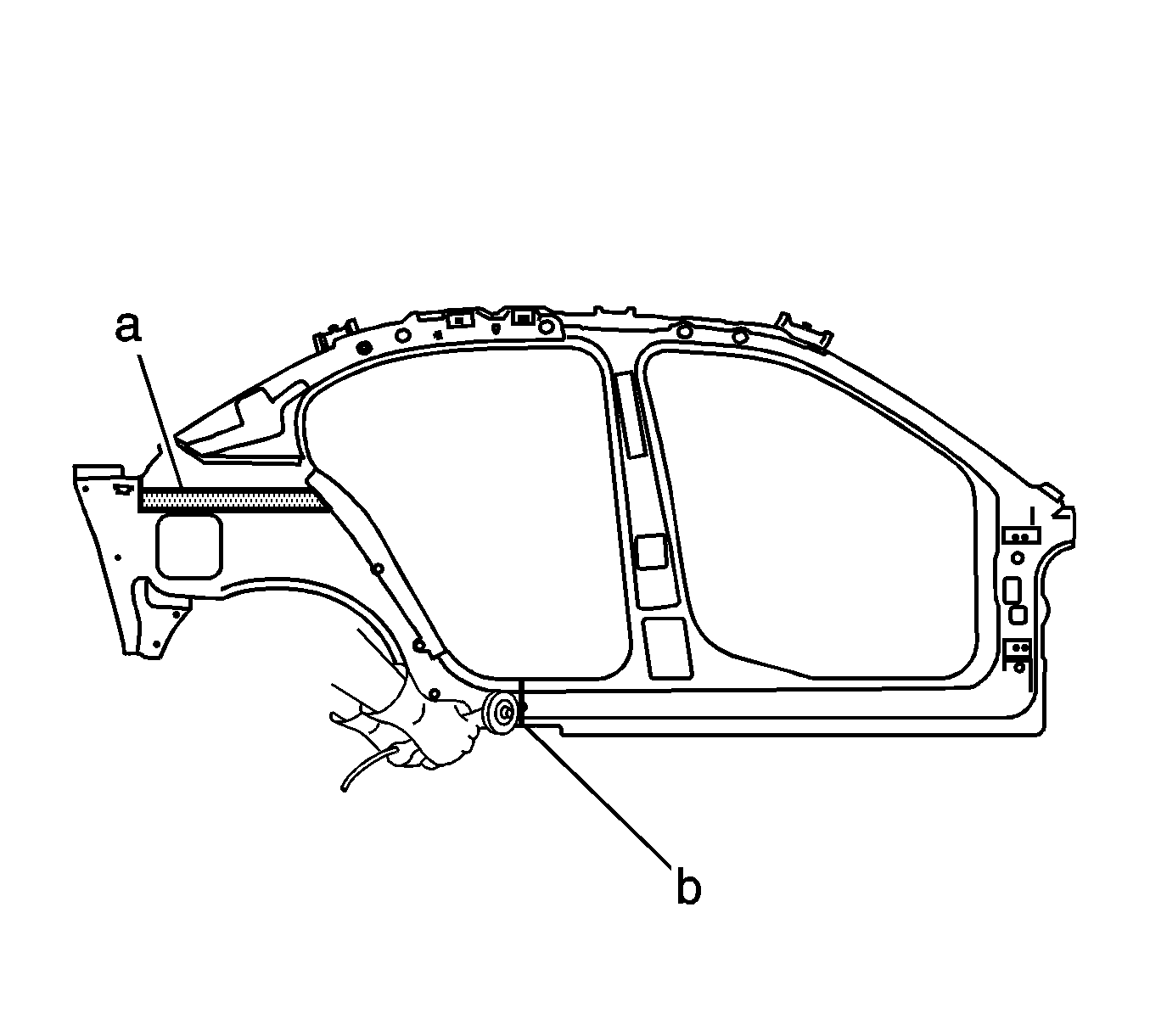
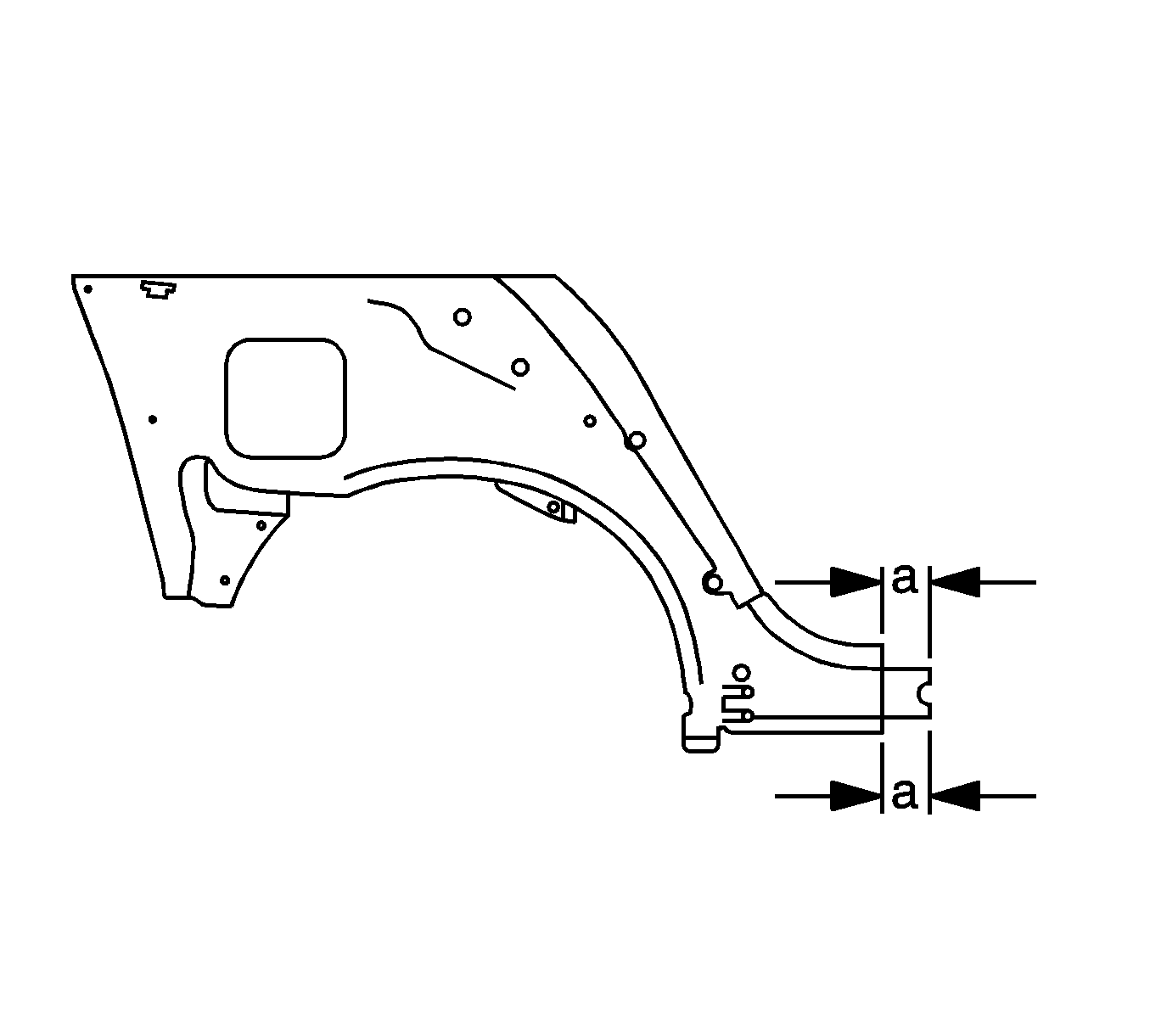
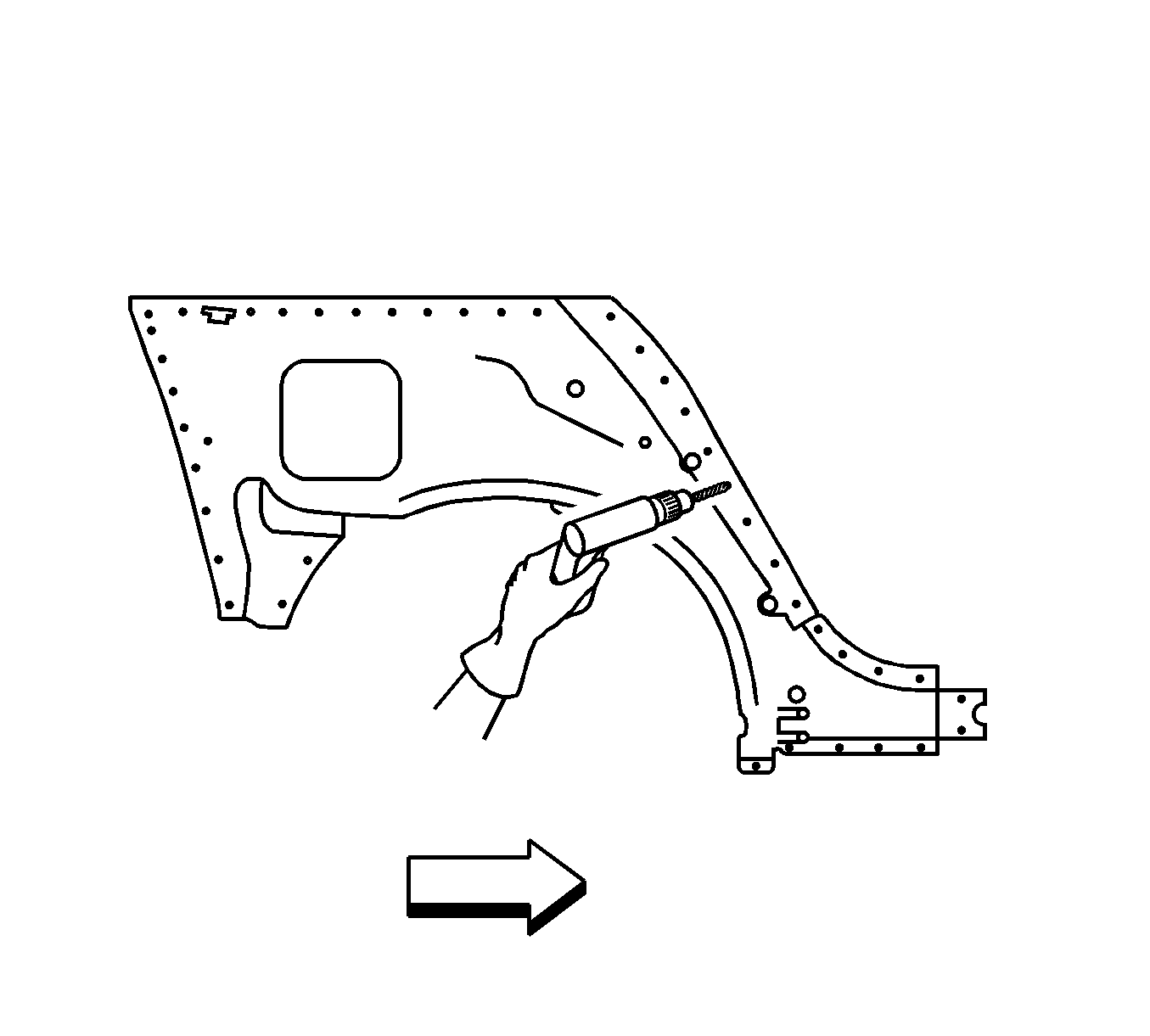
Important: If the location of the original plug weld holes can not be determined, space the plug weld holes every 40 mm (1 1/2 in) apart.
